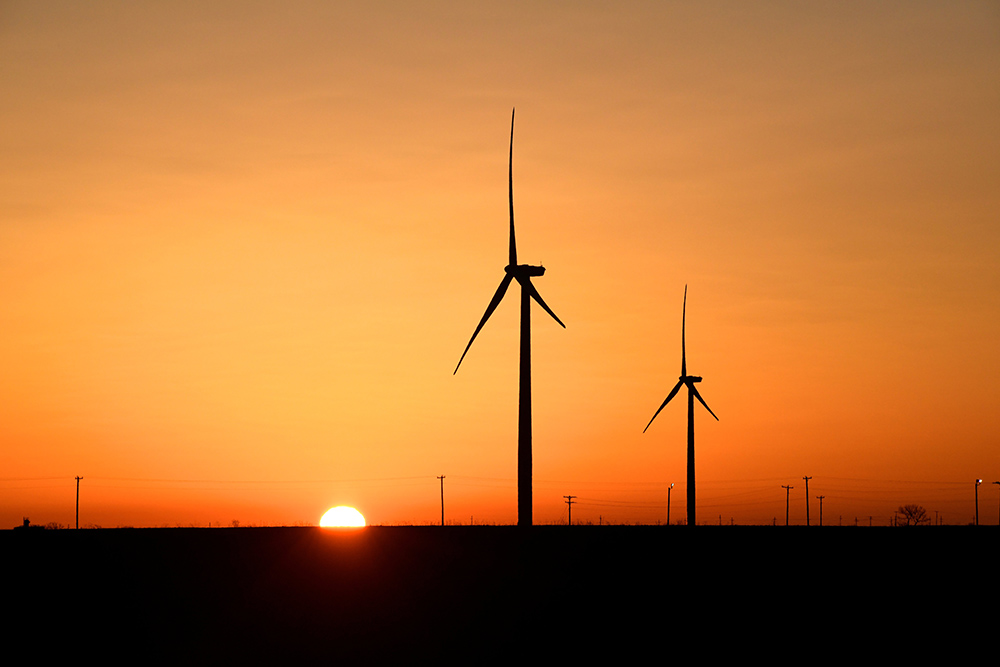
Wind turbines operate at sunrise in the Permian Basin oil and natural gas production area in Big Spring, Texas, Feb. 12, 2019. (CNS/Reuters/Nick Oxford)
Pope Francis' new apostolic exhortation, Laudate Deum, is a call to action that should be embraced publicly by faith leaders across the country. By boldly speaking to the climate crisis and its roots in the intersections between spiritual, political and social forces, Francis is giving voice to the key issue of our time.
This summer, we saw the deadly impacts of climate change all around us. Extreme heat, choking smoke and massive floods inflicted fatal, devastating harm on communities around the country and the world.
The climate chaos we're seeing is what scientists have predicted. The planet's thermostat is now about 1.1 degrees Celsius higher than it was at the start of the Industrial Revolution.
The world has never seen change this big, this quickly. As drought grows, rainfall and temperature patterns shift and storms grow more violent, we simply cannot adapt fast enough. The most vulnerable among us suffer first and worst.
Francis offers a vision for us to solve this crisis. We are greater together, and faith communities must seize the opportunity to live out our values.
A growing number of faith communities are deepening their spirituality with climate justice and creation care. In Ohio, in traditionally blue-collar communities, pastors are integrating climate justice into their preaching, and in Kentucky, a congregation has joined others across the country in publicly sharing the good news of its commitment to creation, inspiring neighbors to do more. This deeper and more robust spirituality underlies faith communities' work on the climate crisis.
Faith communities are demonstrating the transformation of spirit by changing their own practices to better care for creation. In California, a church developed an innovative partnership to install solar panels at no cost, while in New York a Catholic high school is going solar. In Virginia, a parish has developed a comprehensive, multiyear sustainability plan. Our spiritual evolution is reflected through these changes in how congregations operate.
Advertisement
Religious leaders are also giving voice to the urgent need to care for creation and, in particular, to address climate justice. In Washington, D.C., faith voices are calling for better regulation of polluting industries. Around the country, people of faith are joining a global call for a Fossil Fuel Non-Proliferation Treaty, which would end new fossil fuel projects, equitably phase out existing production and ensure a just transition, and loss and damage funds for affected communities.
Across the board, these actions demonstrate that more and more people of faith are committed to protecting creation and all who share it.
Keeping humanity safe means that nearly 60% of all fossil fuel reserves need to stay in the ground. This is an ambitious goal, but we know how to achieve it.
We must rapidly accelerate the installation of renewable energy systems, create electricity storage systems and upgrade our transmission lines. This upsurge should be carried out in a way that creates millions of good-paying green jobs for communities that are bearing the brunt of the crisis while having done little to cause it.
To be sure, this transition will challenge us. But we believe this is a challenge we can meet, making full use of the care, compassion and ingenuity with which we're endowed.
As representatives of organizations that engage people of faith around the country, we are united in our support for Pope Francis' new apostolic exhortation. The pope is showing us the way. It's up to all of us to act.













